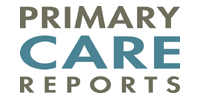26 December 2016
GPs Need Better Access to Community Treatment Services for Patients Diagnosed with Alzheimer's, Says RCGP in Response to Survey
Professor Helen Stokes-Lampard, Chair of the RCGP, said: “Dementia can have a devastating effect on patients, their families and their carers - and GPs are witnessing the impact of this progressive disease more and more frequently.
“It is testament to the hard work and dedication of GPs across the country that in times of intense workload and workforce pressures, the diagnosis of dementia has increased so significantly.
"Earlier diagnosis can enable people with dementia and their families to make more informed choices and decisions about their future care whilst they still have the capacity to do so. But we must also consider that not every person with memory problems will find the advantages of an early diagnosis outweigh the possible disadvantages of being 'labelled'.
"In some cases, GPs may consider it best to delay seeking a formal diagnosis, especially in the early stages of the condition if there is minimal adverse effect on daily living and functioning, but a decision not to refer should be made jointly with the patient.
“A GP's decision to delay referral for formal diagnosis may also come from their knowledge of the local availability of assessment and treatment services, which may be insufficient to meet demand.
“We need to ensure that GPs have better access to appropriate post-diagnostic care services in the community so that patients with dementia can then receive appropriate treatment when and where they need it.
“There also needs to be better co-ordination of referral, assessment, and treatment pathways across primary, secondary and social care – including care homes – so that we can improve both the services and access to them, which will in turn help patients with dementia to live healthy, independent and productive lives for as long as possible.
"Primary, community and social care need to be properly resourced to support people with dementia, their family and carers, not only in managing their dementia but also the impact of the disorder on their other long-term health conditions.
"The College has produced a suite of resources including a dementia toolkit, training materials and educational tools to support GPs in making the diagnosis and undertaking effective management of dementia.”
Further Information
RCGP Press office: 020 3188 7574/7575/7581
Out of hours: 0203 188 7659
press@rcgp.org.uk
Notes
The Royal College of General Practitioners is a network of more than 50,000 family doctors working to improve care for patients. We work to encourage and maintain the highest standards of general medical practice and act as the voice of GPs on education, training, research and clinical standards.
